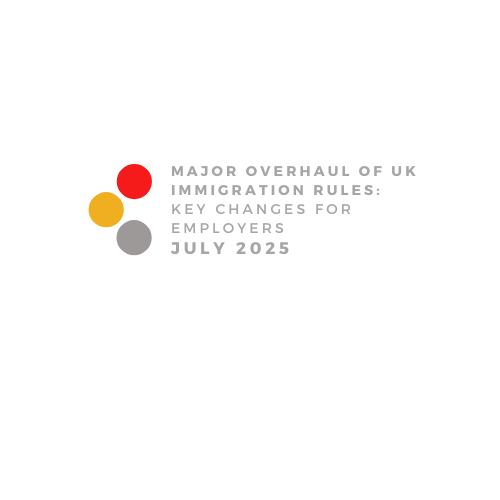Major Reforms to UK Immigration System Announced
- Giselle Brown
- Dec 4, 2023
- 3 min read
The Home Secretary has unveiled a substantial package of reforms aimed at slashing overall migration levels and curbing abuse of the immigration system. If implemented as planned, these changes could reduce net migration by an estimated 300,000 people compared to last year's figures.
Some of the key policy updates include:
- Ending dependents for care workers on Health and Care visas.
- Increasing skilled worker salary threshold to £38,700 (near 50% hike from current £26,200 level).
- Minimum family/spousal sponsor income rising.
- Removing 20% discount for shortage occupations. Migration Advisory Committee to review new "Immigration Salary List" and reduce designated roles.
- Potential changes to Graduate visa route
- Doubling Immigration Health Surcharge to £1,035 annually.
- Exempting some NHS roles from salary increases to continue meeting healthcare needs.
What are some potential consequences of reducing migration inflows in terms of labour shortages?
- Social care sector shortages: The social care sector already has significant staffing shortages which rely heavily on migrant workers. Reduced migration could exacerbate this and negatively impact the quality of care available.
- Agriculture labour constraints: Migrants make up a large part of the seasonal workforce for picking crops. Labour shortages could leave crops unpicked and cause issues for farmers and food supply.
- Food processing and distribution: Industries involved in food manufacturing, processing and distribution often use migrant labour. Shortfalls could disrupt supply chains.
- Hospitality understaffing: Pubs, restaurants, hotels commonly recruit migrant workers for roles. Staffing constraints could impact customer service levels.
- Shortages of NHS clinicians: Groups like nurses and healthcare assistants have seen rising international recruitment. Shortfalls may emerge or put more pressure on existing NHS staff.
- Difficulty filling STEM roles: UK firms recruit migrant talent for science, technology, engineering and maths roles integral to R&D and innovation.
- Economic impacts: Prolonged labour shortages across sectors like these could damage business operations and the broader economy over time through capacity constraints.
So in summary, substantial labour challenges may surface across many industries without access to migrant workers to fill roles.
How can certain industries adapt to potential labour shortages caused by reduced migration?
- Invest in training/reskilling UK workforce: Upskill residents through vocational training programmes to fill shortage roles over time in areas like construction, social care, STEM.
- Increase wages and benefits to attract British workers: Pay premiums and incentive packages to entice UK jobseekers, particularly for occupations facing shortfalls.
- Improve productivity through automation/technology: Use machines, robots and digital tools to enhance efficiency and do more with fewer human workers where possible.
- Enhance recruitment within UK: Run targeted recruitment campaigns in Britain to attract more local workers first before considering visa schemes.
- Diversify sourcing countries for overseas hiring: Look beyond traditional countries of supply to expand international recruitment pools to nations facing own demographic challenges.
- Collaborate with educational institutions: Work with colleges/universities on developing curriculums focused on subjects and skills in demand to better align graduate outputs.
- Consider expanding critical shortage occupation lists: Identify jobs still facing acute shortfalls even after adapting and petition to keep relevant visas open as needed.
- Improve retention of UK staff: Focus on supportive policies that promote better work-life balance, remuneration and career progression to retain existing workforce.
The combination of these options over the long-run could help industries adjust amid potentially tighter labour conditions post-policy changes. But change will require strategic planning and investments.
In closing, the new immigration policies introduced by the UK government aim to significantly reduce overall migration levels while prioritising British workers. However, there remain many uncertainties around how the changes will be implemented and the complex impacts they may have on individuals, businesses and the economy.
GDB Legal is well-positioned to advise on navigating these reforms. Our experienced team of solicitors and case workers will work closely with you to analyse how the new rules specifically relate to your situation or organisation.
Whether you require assistance with visa applications, sponsorship licences, eligibility assessments or appeals - we can provide expert guidance every step of the way. Our goal is to offer clarity and pursue the best possible solutions within the new policy parameters.
If any aspect of the immigration system overhaul raises questions or concerns for your situation, please do not hesitate to contact us. A complimentary consultation can be arranged to discuss your options and next steps.
You can rely on GDB Legal's in-depth understanding of immigration law and changes and professional representation to achieve your goals. We look forward to supporting you through this transition. Contact us today to begin your consultation.
.png)



Comments